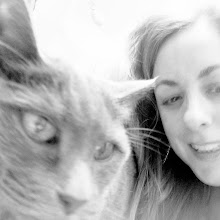 When the Shillelagh
When the Shillelagh Meets the Hood
Part Eight: From
Ireland With Love
Thin Lizzy,
Thin Lizzy,
Deram/Decca (1971)
Me mother is Irish and me father is from Rio. I haven't
seen him since I was four. He's a real lover. He loved them
and left them. I think that's the only thing I learned from
him. Being a black in Dublin wasn't a problem. The Irish
never showed me any prejudice. Besides, I'm a big lad
and I'd deck anybody who said anything nasty to me.
-- Phil Lynott (from John Tracy's liner notes)
Click here for part seven
Ah, but what if Lynott hadn't been a "big lad"? If Micks gave him a hard time, and he couldn't give as good as he got, Lynott might've left the country, or tried his hand at a different trade. Ireland's music history wouldn't be the same. Since 1970, Thin Lizzy has reined as the biggest hard-rock band to emerge from the Emerald Isle, a status unchanged for almost four decades.
Often described as "folk-oriented," Lizzy's first full-length is still a rock record—no qualifiers necessary. I'm not sure how anyone could confuse this 14-track set for a folk-rock enterprise. In fact, the Eric Bell-penned "Ray-Gun" more closely resembles funk-rock. (According to the liner notes, the Northern Ireland-born guitarist once played with Van Morrison's Them.)
seen him since I was four. He's a real lover. He loved them
and left them. I think that's the only thing I learned from
him. Being a black in Dublin wasn't a problem. The Irish
never showed me any prejudice. Besides, I'm a big lad
and I'd deck anybody who said anything nasty to me.
-- Phil Lynott (from John Tracy's liner notes)
Click here for part seven
Ah, but what if Lynott hadn't been a "big lad"? If Micks gave him a hard time, and he couldn't give as good as he got, Lynott might've left the country, or tried his hand at a different trade. Ireland's music history wouldn't be the same. Since 1970, Thin Lizzy has reined as the biggest hard-rock band to emerge from the Emerald Isle, a status unchanged for almost four decades.
Often described as "folk-oriented," Lizzy's first full-length is still a rock record—no qualifiers necessary. I'm not sure how anyone could confuse this 14-track set for a folk-rock enterprise. In fact, the Eric Bell-penned "Ray-Gun" more closely resembles funk-rock. (According to the liner notes, the Northern Ireland-born guitarist once played with Van Morrison's Them.)
Since Lizzy used to cover Hendrix's "If Six Were Nine" and "Fire" in concert, it seems likely they were familiar with his later Band of Gypsys repertoire, like the similarly titled "Machine Gun." In fact, the guitar-saturated "Return of the Farmer's Son" could almost be a Hendrix cover—except for the story-like lyrics, which are 100% Lynott (and he almost played Hendrix in a biopic).
 As for the rest, "The Friendly Ranger at Clontarf Castle" and "Old Moon Madness" begin like 1973's "Vagabonds of the Western World" with spoken-word introductions—and what a lovely speaking voice Lynott had! These tunes, Celtic fantasia "Eire," and acoustic reveries "Dublin" and "Saga of the Ageing Orphan" conjure up a cross between mellow-mood Zep and Moondance-era Morrison.
As for the rest, "The Friendly Ranger at Clontarf Castle" and "Old Moon Madness" begin like 1973's "Vagabonds of the Western World" with spoken-word introductions—and what a lovely speaking voice Lynott had! These tunes, Celtic fantasia "Eire," and acoustic reveries "Dublin" and "Saga of the Ageing Orphan" conjure up a cross between mellow-mood Zep and Moondance-era Morrison.On "Clontarf Castle," Lynott even does a little Morrison-style mumbling. Then, on "Saga," he engages in some Robert Plant-like phrasing, making him sound more British than Irish.
As a singer, Lynott was still finding his voice, though he's far from bad. He also pushes too hard on the ravers. Chances are the band had limited studio time—they recorded in London—and Lynott may not have gotten the number of takes he wanted. On the epic "Diddy Levine," in particular, it sounds like he could use a break for a hot toddy (whiskey and lemon, Ireland's cure-all).
This CD reissue includes the rare "New Day" EP, resulting in a total of 14 tracks, or 53:45 minutes of music. If Thin Lizzy doesn't have the immediate impact of the underrated Vagabonds of the Western World or the mega-platinum Jailbreak, it proves the Irish outfit, including Lynott's Dublin mate Brian Downey on drums, established their basic template from the start.
The three experienced players didn't have to grow into their sound, but rather to harness it to more radio-ready material. There are no embarrassing lapses or false steps, but nor is there a battle cry like "The Boys Are Back in Town." Listen closely, though, to "Look What the Wind Blew In" and "Things Ain't Working Out Down at the Farm," and you can hear it coming.
Endnote: Images from Norman Hood Cartoons and The His-
tory of Phil Lynott. The first pic features the original Lizzy line-
up, the second features Lynott's early band the Black Eagles.

No comments:
Post a Comment